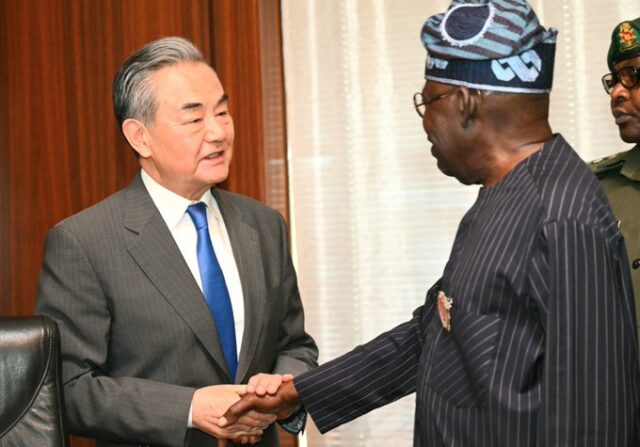In a move to strengthen economic ties, China is evaluating Nigeria’s proposal to expand their existing bilateral currency swap agreement. This development was disclosed by China’s Foreign Minister, Wang Yi, following a meeting with Nigerian President Bola Tinubu in Abuja.
The original currency swap deal, established in 2018 between the People’s Bank of China and the Central Bank of Nigeria, was valued at 15 billion yuan (approximately $2.5 billion at the time). The agreement aimed to reduce dependence on the US dollar, stabilize Nigeria’s foreign reserves, and facilitate trade and investment between the two nations.
Minister Wang expressed China’s willingness to consider Nigeria’s request for an increased swap line, highlighting the positive trajectory of financial cooperation between the two countries. He also invited Nigeria to issue Panda bonds—renminbi-denominated bonds sold in China by foreign entities—emphasizing confidence in Nigeria’s economic stability and credibility.
The issuance of Panda bonds could provide Nigeria with an alternative revenue stream to support infrastructure projects, such as railway modernization, by tapping into China’s liquidity and investor base. This approach would diversify Nigeria’s funding sources and potentially hedge against exchange rate risks.
Recently, Chinese banks have contributed financially to Phase III of Nigeria’s railway modernization project, exemplifying the ongoing collaboration between the two nations. Minister Wang encouraged further consultation with the Chinese Embassy for detailed information on joint initiatives, underscoring the comprehensive nature of the bilateral relationship.
Additionally, both countries reaffirmed their commitment to African-led solutions for regional peace and stability, rejecting external interference in Africa’s security affairs.
The potential expansion of the currency swap agreement and the issuance of Panda bonds signify a deepening economic partnership between China and Nigeria, aiming to enhance financial cooperation and support critical infrastructure development in the West African nation.




























